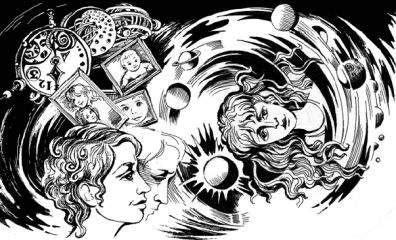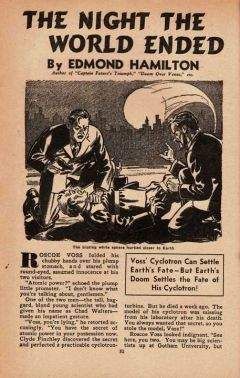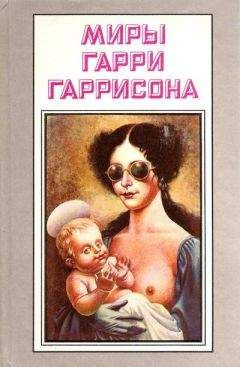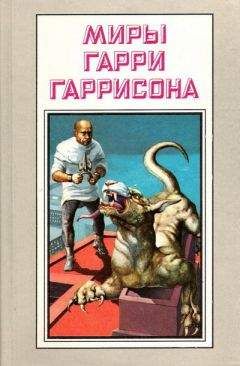Somerset Maugham - Sixty-Five Short Stories
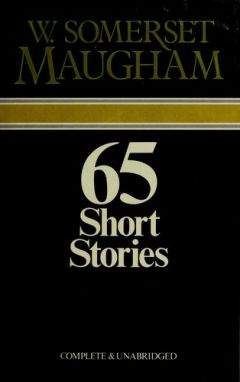
Скачивание начинается... Если скачивание не началось автоматически, пожалуйста нажмите на эту ссылку.
Жалоба
Напишите нам, и мы в срочном порядке примем меры.
Описание книги "Sixty-Five Short Stories"
Описание и краткое содержание "Sixty-Five Short Stories" читать бесплатно онлайн.
'That's neither here nor there. You ate it.'
'With shame. With despair. They broke our strength first with their tanks and their planes, and now when we're defenceless they're breaking our spirit by starving us.'
'You get nowhere by being theatrical, my girl. For an educated woman you have really no sense. Forget the past and give a father to your child, to say nothing of a good workman for the farm who'll be worth two hired men. That is sense.'
Annette shrugged her shoulders wearily and they lapsed into silence. Next day Hans came. Annette gave him a sullen look, but neither spoke nor moved. Hans smiled.
'Thank you for not running away,' he said.
'My parents asked you to come and they've gone down to the village. It suits me because I want to have a definite talk with you. Sit down.'
He took off his coat and his helmet and drew a chair to the table.
'My parents want me to marry you. You've been clever; with your presents, with your promises, you've got round them. They believe all they read in the papers you bring them. I want to tell you that I will never marry you. I wouldn't have thought it possible that I could hate a human being as I hate you.'
'Let me speak in German. You understand enough to know what I'm saying.'
'I ought to. I taught it. For two years I was governess to two little girls in Stuttgart.'
He broke into German, but she went on speaking French.
'It's not only that I love you, I admire you. I admire your distinction and your grace. There's something about you I don't understand. I respect you. Oh, I can see that you don't want to marry me now even if it were possible. But Pierre is dead.'
'Don't speak of him,' she cried violently. 'That would be the last straw.'
'I only want to tell you that for your sake I'm sorry he died.'
'Shot in cold blood by his German jailers.'
'Perhaps in time you'll grieve for him less. You know, when someone you love dies, you think you'll never get over it, but you do. Won't it be better then to have a father for your child?'
'Even if there were nothing else do you think I could ever forget that you are a German and I'm a Frenchwoman? If you weren't as stupid as only a German can be you'd see that that child must be a reproach to me as long as I live. Do you think I have no friends? How could I ever look them in the face with the child I had with a German soldier? There's only one thing I ask you; leave me alone with my disgrace. Go, go-for God's sake go and never come again.'
'But he's my child too. I want him.'
'You?' she cried in astonishment. 'What can a by-blow that you got in a moment of savage drunkenness mean to you?'
'You don't understand. I'm so proud and so happy. It was when I knew you were going to have a baby that I knew I loved you. At first I couldn't believe it; it was such a surprise to me. Don't you see what I mean? That child that's going to be born means everything in the world to me. Oh, I don't know how to put it; it's put feelings in my heart that I don't understand myself.'
She looked at him intently and there was a strange gleam in her eyes. You would have said it was a look of triumph. She gave a short laugh.
'I don't know whether I more loathe the brutality of you Germans or despise your sentimentality.'
He seemed not to have heard what she said.
'I think of him all the time.'
'You've made up your mind it'll be a boy?'
'I know it'll be a boy. I want to hold him in my arms and I want to teach him to walk. And then when he grows older I'll teach him all I know. I'll teach him to ride and I'll teach him to shoot. Are there fish in your brook? I'll teach him to fish. I'm going to be the proudest father in the world.'
She stared at him with hard, hard eyes. Her face was set and stern. An idea, a terrible idea was forming itself in her mind. He gave her a disarming smile.
'Perhaps when you see how much I love our boy, you'll come to love me too. I'll make you a good husband, my pretty.'
She said nothing. She merely kept on gazing at him sullenly.
'Haven't you one kind word for me?' he said.
She flushed. She clasped her hands tightly together.
'Others may despise me. I will never do anything that can make me despise myself. You are my enemy and you will always be my enemy. I only live to see the deliverance of France. It'll come, perhaps not next year or the year after, perhaps not for thirty years, but it'll come. The rest of them can do what they like, I will never come to terms with the invaders of my country. I hate you and I hate this child that you've given me. Yes, we've been defeated. Before the end comes you'll see that we haven't been conquered. Now go. My mind's made up and nothing on God's earth can change it.'
He was silent for a minute or two.
'Have you made arrangements for a doctor? I'll pay all the expenses.'
'Do you suppose we want to spread our shame through the whole countryside? My mother will do all that's necessary.'
'But supposing there's an accident?'
'And supposing you mind your own business!'
He sighed and rose to his feet. When he closed the door behind him she watched him walk down the pathway that led to the road. She realized with rage that some of the things he said had aroused in her heart a feeling that she had never felt for him before.
'O God, give me strength,' she cried.
Then, as he walked along, the dog, an old dog they'd had for years, ran up to him barking angrily. He had tried for months to make friends with the dog, but it had never responded to his advances; when he tried to pat it, it backed away growling and showing its teeth. And now as the dog ran towards him, irritably giving way to his feeling of frustration, Hans gave it a savage brutal kick and the dog was flung into the bushes and limped yelping away.
'The beast,' she cried. 'Lies, lies, lies. And I was weak enough to be almost sorry for him.'
There was a looking-glass hanging by the side of the door and she looked at herself in it. She drew herself up and smiled at her reflection. But rather than a smile it was a fiendish grimace.
It was now March. There was a bustle of activity in the garrison at Soissons. There were inspections and there was intensive training. Rumour was rife. There was no doubt they were going somewhere, but the rank and file could only guess where. Some thought they were being got ready at last for the invasion of England, others were of opinion that they would be sent to the Balkans, and others again talked of the Ukraine. Hans was kept busy. It was not till the second Sunday afternoon that he was able to get out to the farm. It was a cold grey day, with sleet that looked as though it might turn to snow falling in sudden windy flurries. The country was grim and cheerless.
'You!' cried Madame Perier when he went in. 'We thought you were dead.'
'I couldn't come before. We're off any day now. We don't know when.'
'The baby was born this morning. It's a boy.'
Hans's heart gave a great leap in his breast. He hung his arms round the old woman and kissed her on both cheeks.
'A Sunday child, he ought to be lucky. Let's open the bottle of champagne. How's Annette?'
'She's as well as can be expected. She had a very easy time. She began to have pains last night and by five o'clock this morning it was all over.'
Old Perier was smoking his pipe sitting as near the stove as he could get. He smiled quietly at the boy's enthusiasm.
'One's first child, it has an effect on one,' he said.
'He has quite a lot of hair and it's as fair as yours; and blue eyes just like you said he'd have,' said Madame Perier. 'I've never seen a lovelier baby. He'll be just like his papa.'
'Oh, my God, I'm so happy,' cried Hans. 'How beautiful the world is! I want to see Annette.'
'I don't know if she'll see you. I don't want to upset her on account of the milk.'
'No, no, don't upset her on my account. If she doesn't want to see me it doesn't matter. But let me see the baby just for a minute.'
'I'll see what I can do. I'll try to bring it down.'
Madame Perier went out and they heard her heavy tread clumping up the stairs. But in a moment they heard her clattering down again. She burst into the kitchen.
'They're not there. She isn't in her room. The baby's gone.'
Perier and Hans cried out and without thinking what they were doing all three of them scampered upstairs. The harsh light of the winter afternoon cast over the shabby furniture, the iron bed, the cheap wardrobe, the chest of drawers, a dismal squalor. There was no one in the room.
'Where is she?' screamed Madame Perier. She ran into the narrow passage, opening doors, and called the girl's name. 'Annette, Annette. Oh, what madness!'
'Perhaps in the sitting-room.'
They ran downstairs to the unused parlour. An icy air met them as they opened the door. They opened the door of a storeroom.
'She's gone out. Something awful has happened.'
'How could she have got out?' asked Hans sick with anxiety.
'Through the front door, you fool.'
Perier went up to it and looked.
'That's right. The bolt's drawn back.'
'Oh, my God, my God, what madness,' cried Madame Perier. 'It'll kill her.'
'We must look for her,' said Hans. Instinctively, because that was the way he always went in and out, he ran back into the kitchen and the others followed him. 'Which way?'
'The brook,' the old woman gasped.
He stopped as though turned to stone with horror. He stared at the old woman aghast.
'I'm frightened,' she cried. 'I'm frightened.'
Hans flung open the door, and as he did so Annette walked in. She had nothing on but her nightdress and a flimsy rayon dressing-gown. It was pink, with pale blue flowers. She was soaked, and her hair, dishevelled, clung damply to her head and hung down her shoulders in bedraggled wisps. She was deathly white. Madame Perier sprang towards her and took her in her arms.
'Where have you been? Oh, my poor child, you're wet through. What madness!'
But Annette pushed her away. She looked at Hans.
'You've come at the right moment, you.'
'Where's the baby?' cried Madame Perier.
'I had to do it at once. I was afraid if I waited I shouldn't have the courage.'
'Annette, what have you done?'
'I've done what I had to do. I took it down to the brook and held it under water till it was dead.'
Hans gave a great cry, the cry of an animal wounded to death; he covered his face with his hands, and staggering like a drunken man flung out of the door. Annette sank into a chair, and leaning her forehead on her two fists burst into passionate weeping.
The Escape
I have always been convinced that if a woman once made up her mind to marry a man nothing but instant flight could save him. Not always that; for once a friend of mine, seeing the inevitable loom menacingly before him, took ship from a certain port (with a tooth-brush for all his luggage, so conscious was he of his danger and the necessity for immediate action) and spent a year travelling round the world; but when, thinking himself safe (women are fickle, he said, and in twelve months she will have forgotten all about me), he landed at the selfsame port the first person he saw gaily waving to him from the quay was the little lady from whom he had fled. I have only once known a man who in such circumstances managed to extricate himself. His name was Roger Charing. He was no longer young when he fell in love with Ruth Barlow and he had had sufficient experience to make him careful; but Ruth Barlow had a gift (or should I call it a quality?) that renders most men defenceless, and it was this that dispossessed Roger of his commonsense, his prudence, and his worldly wisdom. He went down like a row of ninepins. This was the gift of pathos. Mrs Barlow, for she was twice a widow, had splendid dark eyes and they were the most moving I ever saw; they seemed to be ever on the point of filling with tears; they suggested that the world was too much for her, and you felt that, poor dear, her sufferings had been more than anyone should be asked to bear. If, like Roger Charing, you were a strong, hefty fellow with plenty of money, it was almost inevitable that you should say to yourself: I must stand between the hazards of life and this helpless little thing, oh, how wonderful it would be to take the sadness out of those big and lovely eyes! I gathered from Roger that everyone had treated Mrs Barlow very badly. She was apparently one of those unfortunate persons with whom nothing by any chance goes right. If she married a husband he beat her; if she employed a broker he cheated her; if she engaged a cook she drank. She never had a little lamb but it was sure to die.
When Roger told me that he had at last persuaded her to marry him, I wished him joy.
'I hope you'll be good friends,' he said. 'She's a little afraid of you, you know; she thinks you're callous.'
'Upon my word I don't know why she should think that.'
'You do like her, don't you?'
'Very much.'
'She's had a rotten time, poor dear. I feel so dreadfully sorry for her.'
'Yes,' I said.
I couldn't say less. I knew she was stupid and I thought she was scheming. My own belief was that she was as hard as nails.
The first time I met her we had played bridge together and when she was my partner she twice trumped my best card. I behaved like an angel, but I confess that I thought if the tears were going to well up into anybody's eyes they should have been mine rather than hers. And when, having by the end of the evening lost a good deal of money to me, she said she would send me a cheque and never did, I could not but think that I and not she should have worn a pathetic expression when next we met.
Roger introduced her to his friends. He gave her lovely jewels. He took her here, there, and everywhere. Their marriage was announced for the immediate future. Roger was very happy. He was committing a good action and at the same time doing something he had very much a mind to. It is an uncommon situation and it is not surprising if he was a trifle more pleased with himself than was altogether becoming.
Then, on a sudden, he fell out of love. I do not know why. It could hardly have been that he grew tired of her conversation, for she had never had any conversation. Perhaps it was merely that this pathetic look of hers ceased to wring his heart-strings. His eyes were opened and he was once more the shrewd man of the world he had been. He became acutely conscious that Ruth Barlow had made up her mind to marry him and he swore a solemn oath that nothing would induce him to marry Ruth Barlow. But he was in a quandary. Now that he was in possession of his senses he saw with clearness the sort of woman he had to deal with and he was aware that, if he asked her to release him, she would (in her appealing way) assess her wounded feelings at an immoderately high figure. Besides, it is always awkward for a man to jilt a woman. People are apt to think he has behaved badly.
Roger kept his own counsel. He gave neither by word nor gesture an indication that his feelings towards Ruth Barlow had changed. He remained attentive to all her wishes; he took her to dine at restaurants, they went to the play together, he sent her flowers; he was sympathetic and charming. They had made up their minds that they would be married as soon as they found a house that suited them, for he lived in chambers and she in furnished rooms; and they set about looking at desirable residences. The agents sent Roger orders to view and he took Ruth to see a number of houses. It was very hard to find anything that was quite satisfactory. Roger applied to more agents. They visited house after house. They went over them thoroughly, examining them from the cellars in the basement to the attics under the roof. Sometimes they were too large and sometimes they were too small; sometimes they were too far from the centre of things and sometimes they were too close; sometimes they were too expensive and sometimes they wanted too many repairs; sometimes they were too stuffy and sometimes they were too airy; sometimes they were too dark and sometimes they were too bleak. Roger always found a fault that made the house unsuitable. Of course he was hard to please; he could not bear to ask his dear Ruth to live in any but the perfect house, and the perfect house wanted finding. House-hunting is a tiring and a tiresome business and presently Ruth began to grow peevish. Roger begged her to have patience; somewhere, surely, existed the very house they were looking for, and it only needed a little perseverance and they would find it. They looked at hundreds of houses; they climbed thousands of stairs; they inspected innumerable kitchens. Ruth was exhausted and more than once lost her temper.
Подписывайтесь на наши страницы в социальных сетях.
Будьте в курсе последних книжных новинок, комментируйте, обсуждайте. Мы ждём Вас!
Похожие книги на "Sixty-Five Short Stories"
Книги похожие на "Sixty-Five Short Stories" читать онлайн или скачать бесплатно полные версии.
Мы рекомендуем Вам зарегистрироваться либо войти на сайт под своим именем.
Отзывы о "Somerset Maugham - Sixty-Five Short Stories"
Отзывы читателей о книге "Sixty-Five Short Stories", комментарии и мнения людей о произведении.






